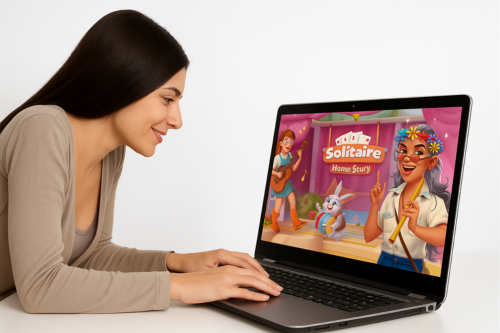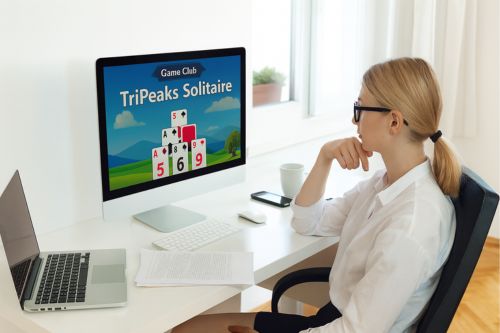
If you're feeling anxious, overstimulated, or simply burned out, these hours can be a quiet reset. Instead of doomscrolling, try something gentler: simple games like Solitaire

Not all games are created equal. Some are specifically designed, or happily serve, the purpose of calming the mind.

From classic card games to relaxing online experiences, certain games are designed to support and even enhance our emotional health.

Not everything has to be high-stakes or brain-twisting. Sometimes, the perfect end to your day is flipping through a deck in peace, no stress, no strategy overload; just satisfying, basic card games that help you slow down.

Whether it’s a tricky level or you just can’t seem to make the right moves, there are ways to reset your focus, rethink your strategy, and get back to enjoying the game (without wanting to throw your phone into a nearby lake).

Scorpion Solitaire is a wild ride. It starts chaotic, stays tense, and demands creative thinking. It looks like a total mess—but underneath that heap of face-up cards is a highly strategic game where every move matters. If you love tough solitaire games where you dig yourself out of a jam (or into one), welcome to Scorpion.

Think of Golf Solitaire like real golf: it looks easy, but one bad move can ruin your whole score. Fast, addictive, and wildly punishing if you don’t plan ahead—this is solitaire with a competitive edge. Let’s get you tee’d up.

If Klondike is yoga and FreeCell is chess, TriPeaks is pinball: bright, bouncy, and ridiculously fun once you catch the rhythm. You’ll clear three little mountains of cards, chain crazy runs, and watch points explode— all in under three minutes if you get good. Ready? Let’s buckle in.

Klondike and FreeCell are logic marathons—great, but sometimes you just want a two-minute dopamine hit. Pyramid is that hit. Part basic math, part card-clearing zen, it’s the solitaire you can finish before the microwave beeps.

Feeling overwhelmed? These 10 cozy games, from meditation apps to story-based solitaire, are perfect for calming your mind and lifting your mood.